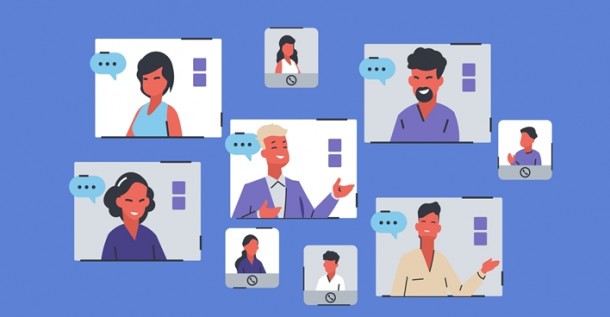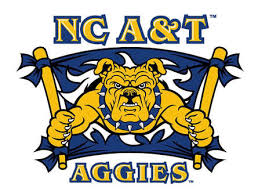Diverse Conversations: What’s Next for Higher Education?

Recognizing the trends of higher education is important for those of us who are involved in it on a professional level. But what are the trends? What’s next for higher education?
Today, I’m speaking with Ryan Evely Gildersleeve who is Associate Professor of Higher Education at Morgridge College of Education at University of Denver.
Q: First off, let’s talk about some of the general trends. How would you describe the trends of higher education now?
A: Money, money, money. Colleges and universities are now commodities and trades. As such, questions need to change and any or all trends must be understood not only in how they might fit within and reinforce this conception of higher education but also how they challenge it. It’s a strange relationship, certainly. To marketize knowledge and commodify education are in many ways at odds with how we’ve understood the role of the university over time, but it’s here. And with it, new forms of accountability, new demands on performance, and new measures of quality. These three trends form a trifecta of imperatives in public and political interest in higher education today. But it also presents new opportunities – and refocuses attentions on some opportunities that have always been there, but were perhaps neglected. In refashioning institutions, we have the chance to determine new purposes and modes of operations. These are values decisions. Our colleges and universities reflect and produce our values as a society. With big data, rapid technology shifts, and globalized capitalism, it’s radical change now. It’s subjecting the university to the market, wholesale – not piecemeal.
It would be a mistake, however, to equate higher education with business. Colleges and universities are not businesses. They are social institutions that perform a social good, as well as bestow private goods onto individuals. The marketization and commodification trend seeks to make money for various people through these social and private goods. But the thing that makes a college or university the powerful and inspiring institution that it is – that’s knowledge. And while capitalist society can find a way to capitalize pretty much anything, that doesn’t necessarily mean the generative activities of knowledge production and dissemination need to be organized as a business. To do so would more than likely truncate knowledge – it would minimize its impact and standardize its form. Part of what makes knowledge such an attractive commodity is its expansiveness, its diversity, its plurality and all the possibilities that follow suit. Rather, the activities of knowledge production and dissemination probably need something less linear, more dynamic, and dare I say, more democratic than business.
Q: Of these trends, which, do you think, is the most important? The one that people should principally pay attention to?
A: Accountability captures most of the sub-trends through which everyday people in academe have the most opportunity to shape their futures – and the future of higher education. Accountability as an imperative is already here, but what it looks like and how it gets operationalized is still up for grabs. Various states have some tentative plans that are starting to make in-roads, although these accountability regimes tend to be short-term and tied to specific temporal goals of enrollment or attainment. For example, Colorado’s master plan sets forward a college completion goal of having 66% of Coloradans with a degree or certificate by 2025. This is in-line with some of the federal government’s ideas around accountability, such as President Obama’s 2020 goal for being the most credentialed country in the world.
Still, no one is really sure what performance measures are best or most appropriate for higher education. That probably has something to do with the moment of higher education’s history we are crafting right now. It took a long time, but then all of a sudden it was made dramatically clear – higher education is the number one way to populate the workforce with knowledge-focused jobs and fuel the economy with consumers. It’s easy to abscond or at least obscure the knowledge imperative of higher education when we think about it only in relation to the knowledge economy. Today, most universities operationalize the knowledge imperative into research, teaching, and service – three distinct yet overlapping modes of scholarship. The knowledge imperative requires resources too easily hidden from the strict production of degrees. And yet, degrees are the most obvious commodity that colleges and universities can sell.
It’s tricky, because degrees are different than most commodities. They are symbolic of student and faculty labor that hopefully generated a broad (in the case of the liberal arts) or specific (in the case of professional programs) expertise. That labor constitutes knowledge. And knowledge isn’t fixed. It’s malleable. But the market seeks to make it static and standardized. Moreover, knowledge has as much to do with process as it does with content – knowledge involves synthesis, analysis, and creativity, regardless of the field of study.
Put plainly, a degree is not like a baseball bat. Sports stores can sell a baseball bat to anyone. A college degree must be earned through the generative activity of a higher education. Whereas, sports stores would never say you must obtain a 300 batting average before they’d sell you a baseball bat, colleges require students to perform above average over a period of about four years before they will bestow a degree.
Beyond this simple accounting of how a college degree is a tough thing to commodify and measure/assess productively (i.e., without absconding the knowledge imperative), it’s important to recognize our systems of higher education in the U.S. are so diverse that a single nationalized version of accountability won’t make much sense. It would be like having one regulating body for the minor leagues of baseball, the apprentice programs in dance, and keeping track of the number of moons orbiting Jupiter. How does one group take responsibility for holding each activity accountable? It can’t. But a small collection of dynamic accountability efforts might provide a whole new venue for talking about and documenting the significance of our systems of higher education in society. It might look more like various portfolios of assessment rather than a scorecard or ranking system.
Any accountability systems we might adopt should incorporate group, organizational, and social metrics, in addition to more traditional individual measurements (e.g., graduation rates). The problem with individual measurements alone is that a college education, being based on knowledge, is not solely an individual endeavor. Knowledge, requires learning, which requires collaboration. Doing so could potentially help revive focus on the knowledge imperative of higher education – moving beyond the linear interpretation of what colleges and universities “produce.”
Cue the faculty and administration.
Q: Why is it important for higher education professionals to pay attention to these trends? What benefits do we derive from being attentive?
A: If faculty and administrators don’t take seats at the table where these decisions are being made and the problems are being figured out, then we really are claiming space as cogs in a machine – and that’s not what most faculty came to the profession desiring. Most of us, I believe, want to take the knowledge imperative of our profession seriously. To do so, we need to configure systems of accountability that help illustrate the importance of our work.
Q: How can we use these trends, then? What strategies do you recommend for not only staying up to date with trends but making sure that they work for you, that you are prepared for them?
A: Faculty can demand seats at the accountability table (as should the public!). This can be difficult, because the commodification of education means we should all be spending most of our time on revenue generating activities – enrollments, external funding for research, etc. But I think engaging in active governance is something we can’t resign to managers and external voices alone. And right now – in this historical moment for higher education – shared governance still has some political cache. Faculty can still bring an institution to a stand still, without fear of losing their livelihoods. Shared governance also means staying up to date on what’s happening within and across our fields – fields of study, fields of education, fields of public investment. We need to think deeply about the ways that our labor – the labor of the knowledge imperative – is unique compared to other labor.
Q: Finally, what do you think is likely to happen in higher education in the future? Do you think the current trends are likely to sustain themselves?
A: I see no end to the commodification of education or the marketization of knowledge. Too many and too powerful economies now rely on it. The relationship between higher education and the economy has changed fundamentally, and with that change comes new questions that the public are expecting higher education to be able to answer. Accountability regimes are expanding in scope and scale. Now is the time to seize the opportunity to use these trends in order to configure the kind of social institution we want our colleges and universities to constitute.
Academics and higher education professionals don’t need to agree with the new economic imperatives of higher education or with the maturation of accountability regimes. But we certainly need to accept the responsibility of sustaining the knowledge imperative that undergirds our generative activity. And we need to recognize the weight of that responsibility as we choose how to engage with the design, adoption, execution, and critique of the accountability systems that will help define what the institution stands for and what it can produce as values of a democratic society.
We would like to thank Ryan for taking the time to sit down and talk with us.





